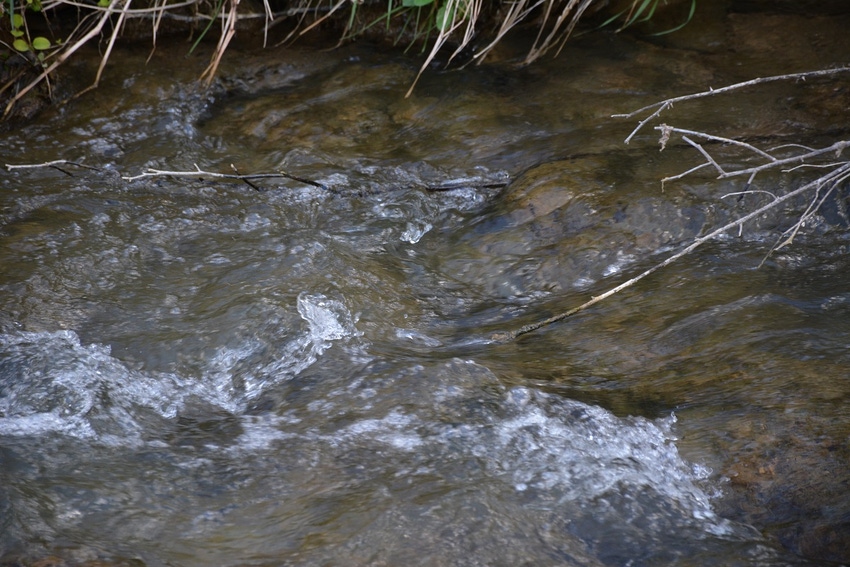December 20, 2016

As the days quickly tick by before Donald Trump officially becomes the 45th President of the United States, Kansas Farm Bureau and Kansas Livestock Association officials are saying a Trump presidency gives cause for both hope and concern to farmers and ranchers across the country.
Warren Parker, Director of Policy Communications for the Kansas Farm Bureau (KFB), says Kansas farm groups have been displeased with Washington and the Obama administration in recent years over issues involving the Environmental Protection Agency's expanding authority.
"There has been a real disconnect in Washington,” Parker said. “Now we see an indication that there will be a seat at the table for agriculture."
But in spite of hopes that Trump may relax Washington's position on environmental issues, Sen. Pat Roberts (R-Kansas), who also serves as chairman of the Senate Agriculture Committee, believes a Trump presidency is a wait and see issue in terms of how it will fare for agriculture.
"We have our work cut out for us to make the Trump administration understand the value of agriculture trade,” Roberts said last week.
TRADE CONCERNS
The consensus among most Kansas farmers is that Trump may be friendlier when it comes to deregulation, but his stand on trade issues could be problematic.
Parker and officials at the Kansas Livestock Association remain cautiously optimistic that Trump will drop environmental regulations that have plagued agriculture in recent years, but they are fast to express concern on the future of trade agreements.
In spite of rural Kansas’ overwhelming support of Trump in his bid for the White House, with an estimated 62 percent of votes in small towns and rural areas supporting his election, there has been a growing concern that he may not be well qualified when it comes to diplomatic relations, especially as they relate to international trade.
For instance, Trump lashed out at China over the weekend after the Chinese Navy seized a U.S. underwater drone in the South China Sea about 50 miles northwest of Subic Bay in the Philippines. The Pentagon maintains the drone was gathering "military oceanographic data," such as salinity, water temperature and sound speed. But Chinese naval officials report they were simply trying to identify the nature of an unknown submersible to determine if it posed a threat to international shipping in the region.
THE DRONE MATTER
After an official U.S. State Department protest was made over the issue, Chinese officials indicated they were willing to return the drone. (Latest reports indicate the drone has been returned.)
Twitter response from President-elect Trump Saturday night has aggravated an already tense situation according to some sources. Trump's social media post lashed out at the Chinese accusing them of "stealing the drone from the U.S. Navy in an unprecedented act." He went on to say the Chinese could keep the drone because the U.S. did not want it back.
The incident comes at a volatile time in U.S.-China relations, especially after Trump broke a 32-year protocol earlier this month when he called Taiwan President Tsai Ing-wen, the first time a U.S. President has acknowledged Taiwan's independence since 1979. Chinese officials lodged a protest over the incident. Beijing has since warned that China will “strike back firmly” if Trump, after officially becoming the new President, openly challenges China’s core interests like Taiwan, Tibet, and the South China Sea.
Shi Yinhong, director of the Center on American Studies at Renmin University in Beijing and an adviser to China’s State Council, says those options could include recalling the Chinese ambassador from Washington, stopping international cooperation between the two nations, fighting a trade war or even severing diplomatic ties completely.
U.S. trade officials say such moves could threaten a two-way trade relationship with the U.S. that reached $627 billion in 2015. Such a move could also threaten agricultural trade relations that could spell trouble for U.S. farmers and ranchers in the years ahead.
But in spite of the potential for difficult times ahead, most farmers and ranchers remain hopeful that the future holds promise for agriculture. For one thing, Trump's nomination of Oklahoma Attorney General Scott Pruitt to head the EPA may provide some relief from environmental policy concerns.
Aaron Popelka, a vice president of the Kansas Livestock Association (KLA), says he believes Pruitt's leadership could signal the end to "EPA's over-regulation,” but he warned Trump's promise of ending the North American Free Trade Agreement (NAFTA) would be a disaster to farmers and ranchers. On top of that, Trump's opposition to the Trans-Pacific Partnership is troubling for agriculture.
TRADE ISSUES
Many Kansas producers express concern over Trump's opposition to opening trade relations with Cuba. Parker agrees, saying the Kansas Farm Bureau hopes to increase trade to the island. Any effort to hijack those efforts is considered bad business for farmers.
Also of concern is Trump's stated position on immigration. Farmers generally agree on a need for immigrant farm worker availability, and they hope for a more meaningful path to accomplish that to help solve may farm labor needs.
Parker and Popelka say they are anxiously awaiting Trump's decision on who will be nominated as the next Secretary of Agriculture. That decision is expected soon, and farmers are hopeful the nominee will be one with experience and passion for the industry.
You May Also Like




